|
"When people feel safe to talk this becomes self-perpetuating and positive." More than a catchy course title, this training session part of our on-going Diversity, Equity and Inclusion work with Diverse Educators was set to be a life-affirming session for the SWIFT Central Team and Delivery Partnership Group. How do we empower everybody to ask questions, share views, and things that should have been said? Typical examples of Courageous Conversations include handling conflict, confronting a colleague, expressing an unpopular idea on a team, asking for a favour, saying no to a request for a favour, asking for a raise, or trying to have a conversation with someone who is avoiding you. Research shows that in particular, many women find such ‘courageous conversations’ to be challenging. Think of the language that betrays who can “get away” with certain behaviours. Men are labelled the boss and women as bossy. These mindsets are reflected in the workplace and how women have been conditioned. Too often, the premise of courageous conversations is associated with conflict, fills us with dread and we descend into a defensive, blame culture that magnifies the existing tension and struggle and becomes a negative scenario. Whereas we need to act in a neutral, open way, without bias and to show a willingness and openness to learn. The fear zone of hurting someone risks inhibiting us and we can worry more about having the courageous conversation than the act of doing it. We waste energy attempting to mind-read what people are thinking and feeling that boxes us in. Know your strengths and what you bring and learn to control yourself. Consider the power in having a conversation. No-one shies away from safeguarding conversations. It should be the same for a courageous conversation that whilst often difficult and necessary, when done effectively, it can have a dramatic impact on how we lead ourselves, the team and/or the organisation. It can be difficult to find a time to talk in a busy school and it is important to book in time and to reframe as part of the workplace culture that builds positive psychology and a collective commitment. But for many of us, we have to step out of our comfort zone to discuss a topic that can be emotionally charged and we fear an emotional response. Whilst we might seek to avoid such conversations, they can help to build an inclusive workplace and push through to the learning zone to learn about ourselves, our team and the wider culture and ultimately, to ensure growth. See Matthew Syed’s book, “Rebel Ideas” that asks if we are open to ideas and the importance of learning how to reframe and negotiate. For example, in asking for flexible working, or a salary raise. We need to build our confidence to build our competences as strategic intent and a framework of training. Intentional psychological safety should be for everyone in the workplace. The ideal reset opportunity is in September at the start of a new term, building in “contracting” for courageous conversations at a neutral and unemotional safe point. All staff should be trained. Not only the dominant, senior and more confident members of staff. Experience shows when all staff are trained, the best response is from operational staff who have never had a voice in the school. Sub cultures across an organisation need careful navigation. By building psychological safety in a school, all staff will have the courage to speak out and share how it will be received and processed with positive intent. Practically, this means creating a subtle and private space, especially in an open office and equally on the telephone. Tell the other person that you are in a confidential space to show mutual respect. There are many advantages of psychological safety (door open policy). Staff feel valued, and are more productive and creative with higher wellbeing, thriving and a feeling of belonging, leading to better staff retention. Energy is conserved as there is an agreed way of talking and less frustration, with more flexible working that is very positively mirrored in the classroom. The negatives of psychological safety (doors shut) are damaging to an organisation. It can result in high absence; staff have a limited sense of purpose and connection and disengagement of staff. When it comes to courageous conversations with parents and carers, it is not always possible to plan for what are often unexpected meetings. Understandably, a parent is emotionally attached to their child and might be defensive if they perceive the conversation to be a challenge. But it is encouraging that this generation of students seem to be more open to courageous conversations. Essentially, understand that we have the responsibility to raise the courageous conversations if an issue or something has happened. Pre-empt. But be aware that one conversation is not the same for everyone. Make the time for the conversation. Be intentional and think through and reiterate the key points. Listen actively and hear through it and do not take it personally and strive to be objective. With the Radical Candor model (Kim Scott) the balance is towards growth and to bring awareness to the person you are having the conversation with. “When you said this, it made me feel like this…” and join up the dots in the conversations. Part of the problem is letting someone behave badly. But if you have a courageous conversation, you can do it in a caring way, “I care about you so I am going to challenge you…” and this can disarm people in a positive way. Think how we modify ourselves to other people and our relationships and the use of language. This modifies from the early phase of a professional relationship in the opening interactions and evolves over time when you have a positive track record. Use a buddy as a sounding board. Then, if difficult situations arise you can leverage the relationship capital from your authenticity, credibility and integrity. Move from impulsion to intentional. With the Fierce Conversations model (Susan Scott), “Create an organizational culture where candor and curiosity are the expectation…Think passion, integrity, authenticity, collaboration. Think cultural transformation. Think leadership.” “Get curious rather than critical.” Part of coaching, reframe questions to how or what – not why. Meet in the middle and learn from it and learn some awareness from each other and tackle the challenge, contracting how to move forward. “It’s the conversations that we don’t have, that cause the biggest problems.” The key principles of fierce conversations are:
If you are good at regulating your emotions you can guide the other person to stay regulated too. Preparation before the courageous conversation is essential to anticipate how they might respond. For example, lesson observation feedback in the person's classroom. If it is good or bad, they will be in their own space. Use emotional intelligence of how and where they are sat in the classroom. Or book a phone call later to suit you both and use an out of office sign, and phones and emails off so that you can give your full attention. “The conversation is the relationship.” The impact of not having a fierce conversation can be the breakdown of employee relationships and a lack of respect for them and us and damaging the organisational/school culture. There can be a mismatch and an unhealthy dissonance culture between what they say and what they do and bad situations can fester. Learn also how to manage the emotional wake and the emotional wake of others. Useful sentence starters can allow time to process. “Am I hearing you correctly to reclarify?” “Can you tell me more..” “What I hear you saying is..” Remember the power of the pause and encouraging comments and always regulate yourself as how you respond will dictate how they respond. Do not hijack their story or interrupt. Do not play one-upmanship and minimise the difference or discount and explain away. Do not get defensive or take it personally or try to validate assumptions. Remember also, self-reflection after the conversation about what went well. A strong strategy is to build opportunities and routines into the way we work. For example, a mid-year appraisal and create an expectation as the norm. As deliberate practice courageous conversations can become the Code of Conduct and working proactively helps to make the workplace a psychologically safe place to work. “We make the weather in our own environment.” Radical candor = consistent behaviour. Proactive to the workplace culture.
Fierce conversation = to resolve something. Not all the time. Reactive to challenge something specific. We thank Diverse Educators lead, Hannah Wilson for guiding us through this empowering session on Courageous Conversations and reminding us of the value of a shared collective, close to our SWIFT heart founded on partnership. Report by Jude Owens, PA to the SWIFT Executive Team
0 Comments
Your comment will be posted after it is approved.
Leave a Reply. |
SWIFT News
|
SPONSORED BY
Join us, be a part of our SWIFT community |
© COPYRIGHT 2022 SOUTH WEST INSTITUTE FOR TEACHING SWIFT. ALL RIGHTS RESERVED | Website by brightblueC
VIEW OUR PRIVACY NOTICES | VIEW OUR COURSE T&CS
VIEW OUR PRIVACY NOTICES | VIEW OUR COURSE T&CS

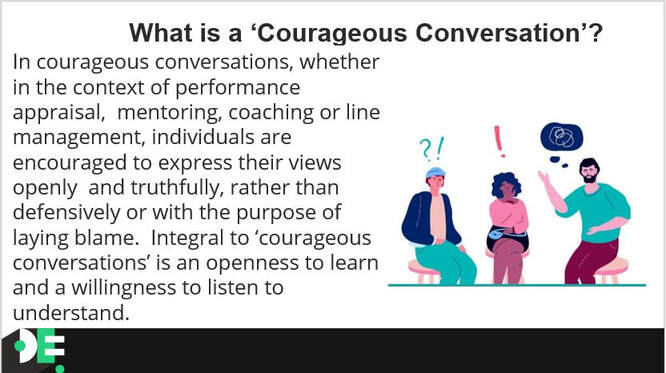
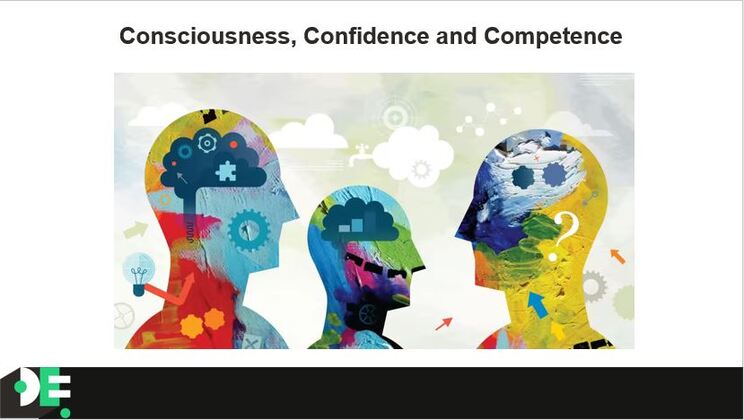
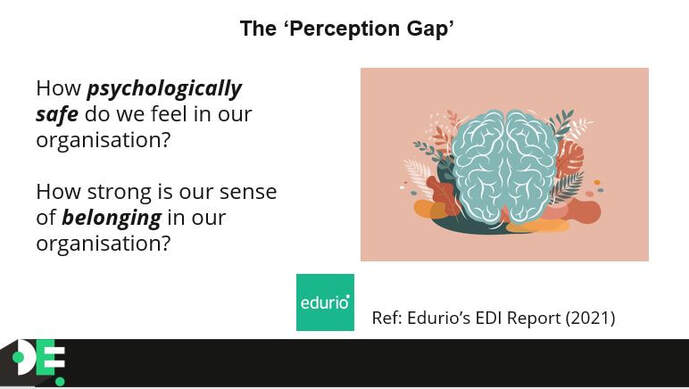
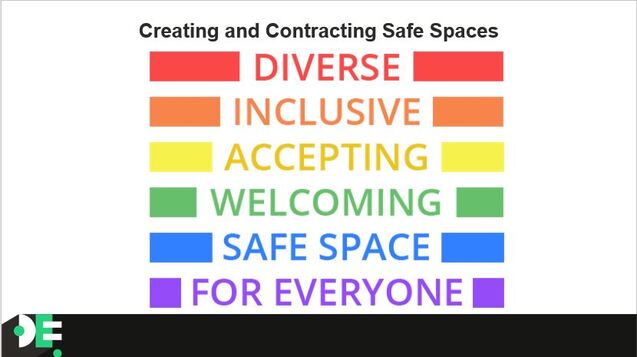
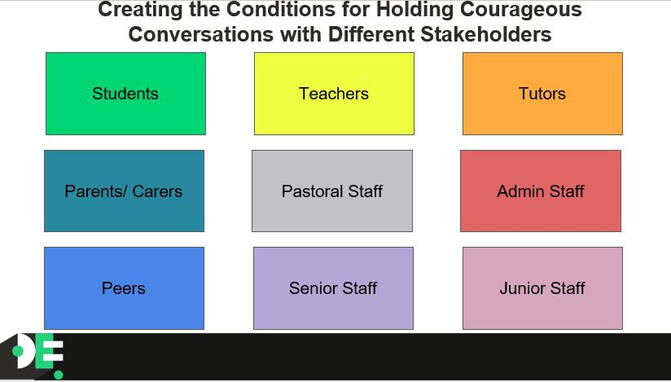
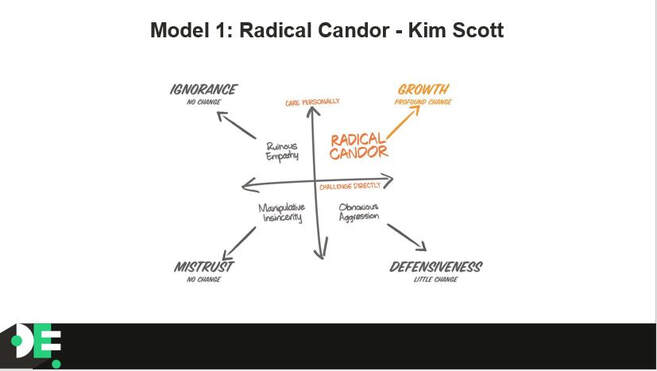
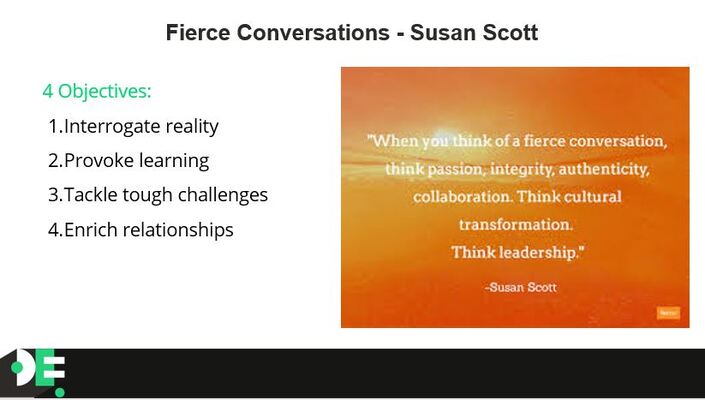
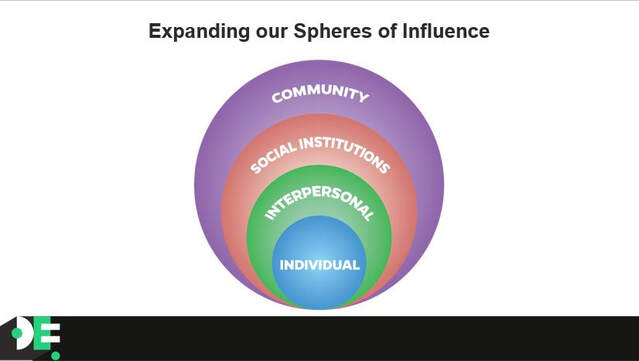

 RSS Feed
RSS Feed





